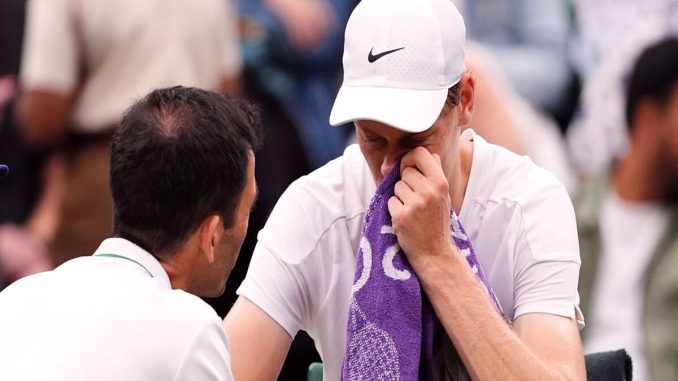World number one tennis player Jannik Sinner has opted not to appeal a three-month suspension imposed by the World Anti-Doping Agency (WADA) after testing positive for the banned substance clostebol. This decision, effective from February 9 to May 4, 2025, allows Sinner to return to competition before the French Open in late May.

Sinner’s positive test in March 2024 was attributed to inadvertent contamination from his physiotherapist, who used a spray containing clostebol to treat a personal injury and subsequently massaged Sinner without gloves. An independent tribunal initially cleared Sinner of wrongdoing, but WADA appealed, seeking a longer suspension. To avoid the uncertainty and potential for a more extended ban from the Court of Arbitration for Sport (CAS), Sinner accepted the three-month sanction.
WADA’s chief counsel, Ross Wenzel, emphasized that such settlements are not unique, stating that WADA has entered into approximately 70 similar agreements over the past four years. He highlighted the importance of athlete responsibility for their support teams’ actions, noting that while Sinner did not intentionally cheat, the negligence of his entourage warranted the suspension. Wenzel urged those concerned to review the detailed facts of the case as outlined by the Independent Tribunal.
The decision has sparked criticism within the tennis community. Players like Alexander Zverev and Nick Kyrgios have questioned the leniency and consistency of doping rulings, suggesting possible favoritism. Despite these critiques, Sinner remains focused on returning to the sport, acknowledging his responsibility for his team’s actions and expressing a desire to move forward.
During his suspension, Sinner will miss significant tournaments, including the Masters events in Indian Wells, Miami, Monte Carlo, and Madrid. However, his acceptance of the ban ensures his eligibility for the French Open, allowing him to resume his pursuit of Grand Slam titles without prolonged legal disputes.
This case underscores the complexities of anti-doping regulations and the imperative for athletes to maintain vigilant oversight of their support teams to prevent inadvertent vi
olations.
Be the first to comment